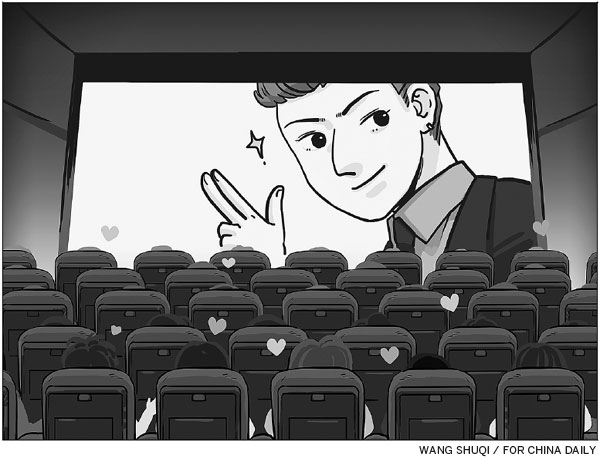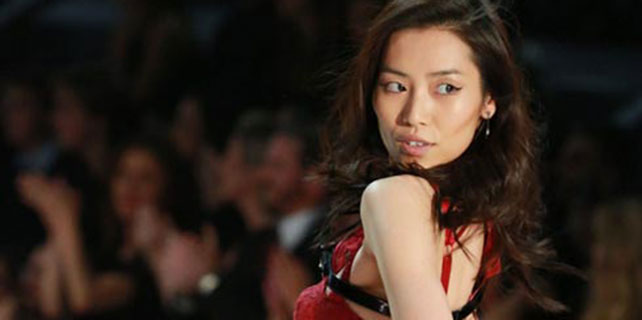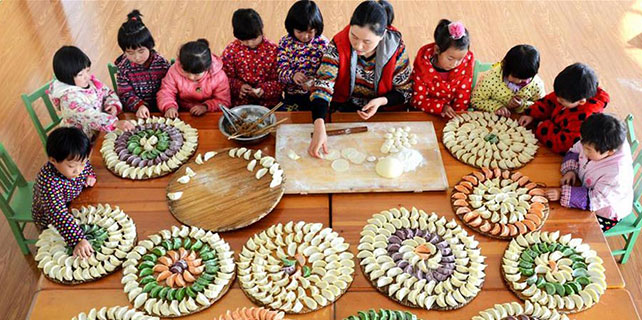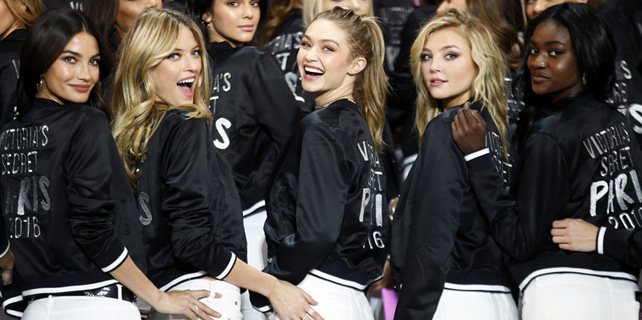Twilight of the pretty boys
The invasion of China's teen idols, amorously called 'young fresh meat', has triggered a backlash in the entertainment industry that insists on professional standards.
It seems the "young fresh meat" phenomenon has reached a tipping point.
It is a Chinese slang term that refers to teen idols, especially male. Think of Justin Bieber when he was first breaking out.
For several years now, the androgynous faces have been splattered all across billboards and screens, not to mention cyberspace where their presence is overwhelming. Many started as members of boy bands and branched off to other platforms of showbiz.

Their meteoric rise has caught many off guard. For example, some of them are reportedly dangling asking prices in nine figures for a film role. For those of you not quick with math, that equates to a minimum of 100 million yuan ($14.7 million), higher than most A-list superstars with a proven track record.
But in a span of just a couple years, their influence on ticket sales may have come full circle.
Take Kris Wu. Barely two years have lapsed between Somewhere Only We Know, his big-screen debut, and Sweet Sixteen, both heavily dependent on his idol appeal, and the box-office numbers have declined from 286 million yuan to 149 million.
One can assume his price for the latter was much higher, leaving the producers and investors possibly in the red.
The alarm bell was sounded when L.O.R.D (Legend of Ravaging Dynasties), amassing half a dozen of the biggest names including Wu and one of the TF Boys, grossed only 382 million yuan when the forecast was 2 billion or more.
Where were their loyal fans when they were needed? Perhaps they had overlapping fan bases.
If you care to examine the data, movies they starred in usually registered between 100 and 400 million yuan in box-office returns, which is respectable by normal standard. But once you factor in their newly astronomical rates, the projects appear unprofitable.
There are exceptions of course: Time Raiders, this summer's biggest hit, touched the milestone of 1 billion yuan. It featured Jing Boran and Lu Han, two of the boyish actors who, on screen, bantered like a couple. But the fact that the book it was adapted from has been a veritable franchise must have accounted for something.
Last year's Mr. Six was both a critical and commercial sensation, but Wu and Li Yifeng played only supporting roles and were not viewed as responsible for the sustained word of mouth it garnered beyond the first few days of release.
Zhang Yimou's upcoming Great Wall, with a starry cast that includes Lu Han, Eddie Peng, Kenny Lin, Huang Xuan, Chen Xuedong and Karry Wang, may not take flight or crash on the strengths - or lack thereof - of the above heartthrobs alone. They come off more as icing on the cake than the key ingredient. Yes, to catapult a movie beyond the half-billion-yuan mark, you'll need more than star power. You'll need word of mouth.
Pampered kids
Economics can easily explain their over-the-roof prices: They are too much in demand. But it cannot explain why some of them act like spoiled brats. Well, you can. Unprofessional behavior that is normally not tolerated by peers becomes simply - well, quirky - once they know they are the draw of the crowd.
Most of the teen idols have displayed limited acting skills. Very often, they would assume one expression - cool - and carry it to the end of a movie.
Li Yifeng was widely panned for not mastering the Beijing dialect while playing a native kid from the hutong (alley) in Mr. Six. It was an irony that he got an award from the Hundred Flowers Award for it, which instantly turned the event into a joke and showed how much the establishment was courting them because they have the power to whip up a house of screaming fans. They have a much easier time than The Donald - they just smile and wave, no need to use nasty words.
It has been reported that some of them - and this includes hot young female stars - don't give adequate time to each role. Any shots that are not close-up are done by stand-in look-alikes. Directors and producers have to beg them for an extra take.
Some don't even take the trouble to memorize the lines. Instead of the text in the script, they simply mouth a string of numerals, usually one through seven and then backward, so that the actual lines can be dubbed in postproduction by someone else.
Such an appalling degree of unprofessionalism has antagonized even the most mild-mannered peers.
Director Yee Tung-shing has vowed never to hire anyone who simultaneously takes on multiple gigs and insists the in-demand star be dedicated to just one project at a time.
Feminism running amok?
There is one silver lining around the "young fresh meat" cloud and that is the rise of girl power.
Call it equal-opportunity exploitation. In the old days, beautiful young women were - and still are - objectified by the male audience. While good-looking male stars have been in existence since the advent of movies or theater, the blatant exploitation of them just for the sake of their physical beauty is relatively new in China. It testifies to the burgeoning economic power of today's women.
Urban white-collar females are heavily influenced by cultural imports like Sex and the City and refuse to continue playing the prim and proper role of women dictated by thousands of years of tradition.
The term "young fresh meat" itself smacks of such brazenness. It is said to be an exclamation from female patrons who screen and vet gigolos. Whether it was used tongue-in-cheek, tens of millions of women, who probably never guessed its origin, just giddily called their idols by this moniker - and in the case of South Korean stars - "husbands".
Kai Ko, one such boy toy, saw his career going down the drain when extreme fan fervor in the aftermath of his doping incident alarmed the authorities, who banned him from public appearances.
However, it is unfair to label all of them as spoiled. Some will emerge as reputable actors. But others seem to be acutely aware of their own limited potential as anything other than pretty poster boys and just want to cash in before reaching their expiration date. By the time the next pack of fresh meat rolls around, they'll be sitting on a mountain of nest eggs.
As for the market demand for immaculate facial features and perfect physiques, hopefully it will be separated from art and get its own category of entertainment. We won't hate you because you're beautiful. Just don't call yourself an actor. Being an actor requires certain principles of conduct and capability other than a profusion of makeup.
Contact the writer at raymondzhou@chinadaily.com.cn









